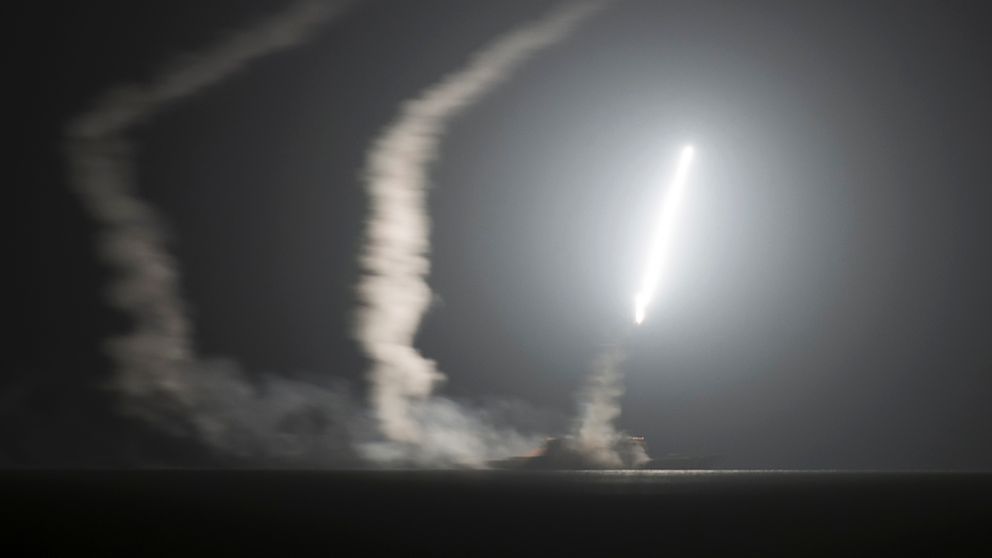Syrian Airstrikes Raise Lone Wolf Terror Threat in US, Feds Warn
“We believe these strikes will contribute to homegrown violent extremists."

— -- American airstrikes in Syria overnight halted the threat of terrorist attacks in the U.S. homeland from organized groups like ISIS and al Qaeda, but raised the specter of angry lone-wolf sympathizers carrying out an attack on their own, federal authorities said today.
The American airborne offensive could potentially embolden self-radicalized terrorists to strike inside the homeland, the Department of Homeland Security and FBI say in a joint bulletin issued to local, state and federal law enforcement late today.
While “single events generally do not provoke an immediate response” from homegrown extremists, “[W]e believe these strikes will contribute to homegrown violent extremists’ … broader grievances about U.S. military intervention in predominantly Muslim lands, possibly motivating Homeland attacks,” according to the bulletin.
President Obama Says Airstrikes Against ISIS Targets in Syria 'Not America's Fight Alone'
What Is the Khorasan Group, Targeted By US in Syria?
Less likely in the near-term, the bulletin says, is an attack “in direct response to the strikes in Syria” by organized terrorist groups, including core Al Qaeda or the Islamic State of Iraq and Syria (ISIS), the brutal terrorist group that has seized vast swaths of territory in Syria and neighboring Iraq and was a target of the airstrikes overnight.
The bulletin notes ISIS’ prolific online campaign and cites a recent audio message from ISIS that called for “lone offender attacks in the Homeland in retaliation for U.S. military operations in Iraq and Syria,” as the bulletin put it.
And though “in the near term” most homegrown terrorists will try to join groups overseas rather than carry out their own attacks in the United States, authorities “cannot rule out the possibility … that some [homegrown terrorists], acting alone or in small groups, could attempt simple attacks with little or no warning,” according to the bulletin.
The bulletin stresses the “importance” of the American public reporting suspicious behavior and “remain[ing] vigilant.”
“We face an increased challenge in detecting terrorist plots underway by individuals or small groups acting quickly and independently or with only tenuous ties to foreign handlers,” the bulletin reads. “Pre-operational indicators are likely to be difficult to detect.”
Still, the bulletin offers law enforcement “potential indications” that someone in the United States might be seeking to retaliate for the airstrikes, including “new or increased advocacy of violence” and “adoption of new lifestyles, changes in appearance, and segregation from normal peer and family groups in association with advocating criminal or terrorist activity.”
Another group targeted by the airstrikes is known as the Khorasan group, a little-known collection of “seasoned Al Qaeda operatives” that was “nearing the execution phase for an attack in Europe or the homeland,” U.S. officials said today. And only hours later, the bulletin says the airstrikes “may have temporarily disrupted attack plotting against U.S. and Western interests” by both ISIS and the Khorasan group.
The planned attack against the West pushed the United States to strike the Khorasan Group in Syria and is linked to the same threat ABC News first disclosed this summer.




